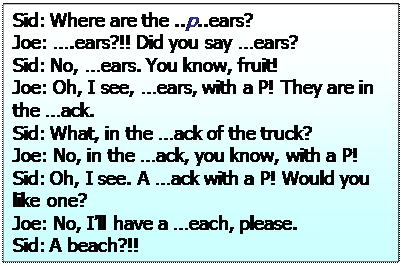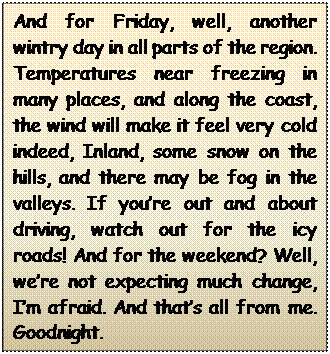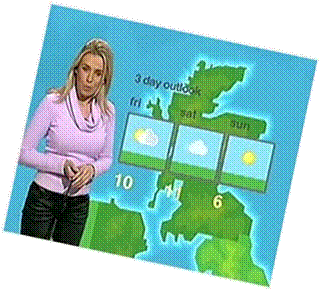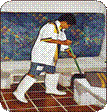Introduction
“Practical Guide to English Pronunciation” is a comprehensive course for intermediate students of English. The book is intended to build learners’ awareness and concern for pronunciation. Throughout “Practical Guide to English Pronunciation” the emphasis is put on linking work on pronunciation with work on developing listening and speaking skills, so students are provided with both receptive and productive practice. The aim is not to produce the ideal standard of English pronunciation, but to concentrate on what is important in making sounds which will be readily understood and accepted.
“Practical Guide to English Pronunciation” consists of 10 modules, each containing three sections. Section A aims to cover the sounds of English and their main spelling, alternatives are included for those areas of pronunciation which are especially susceptible to variation across different varieties of English. Section B focuses on pronunciation units which are bigger than individual sounds: syllables, word stress and sentence stress. Section C deals with pronunciation features which emerge in the context of conversation; these include discourse organization and tones. Appendix contains additional jazz chants and poems to be recited in class.
The course is accompanied by a recording of all the practice material on a CD. The book and the recording are both designed for use in class and by students working alone.

Letters and sounds
Consonants: [p – b]
To make the sound [p]: Close your lips hard. Push air forward in your mouth. Open your lips quickly with a small air explosion.
To make the sound [b]: Follow the instructions above, use your voice.
Ex.1 Listen and repeat.
[ p ]
pen pocket passport pin pepper pot








a piece of pork pie an apple, please


[ b ]
bird bread butterfly rubber web





globe busy as a bee


Ex.2 Listen and repeat the words paying special attention to sounds [ p – b ].
 pin – bin
pin – bin 
 pen – Ben
pen – Ben 
 pear – bear
pear – bear 
 cap – cab
cap – cab 
 pup – pub
pup – pub 
Ex.3 Practise saying the tongue twisters.
 |

 Peg’s as pretty as a picture.
Peg’s as pretty as a picture.
 Peter Piper picked a peck of pickled pepper,
Peter Piper picked a peck of pickled pepper,
A peck of pickled pepper Peter Piper picked.
If Peter Piper picked a peck of pickled pepper, 
Where’s the peck of pickled pepper Peter Piper picked?


 Barbara’s as busy as a bee.
Barbara’s as busy as a bee.
 Ben’s a bag of bones.
Ben’s a bag of bones.

 Bell has a bee in her bonnet.
Bell has a bee in her bonnet.
 Bob lives at the back of beyond.
Bob lives at the back of beyond.
Ex.4 Read the conversation to the end, then write the letter “p” or “b” in each gap. Listen and check your answers. Practise pronouncing it. (A11)

Ex.5 Listen to the recording, in one word of each group, the ‘b’ or ‘p’ is not pronounced. Underline the word. (A12)
EXAMPLE double doubt Dublin
1. lamb label lab 5. recipe repeat receipt
2. crab robbed climb 6. possibly psychology special
3. cup cupboard copy 7. Cambridge combine combing
4. photo potato paper
Ex.6 Listen and tick (√) the sentence you hear, A or B. (A13)
| A | B | |
| There’s a bear in that tree. | There’s a pear in that tree. | |
| He had the beach to himself. | He had the peach to himself. | |
| They burned it. | They’ve earned it. | |
| Say ‘boil’. | Save oil. | |
| This is a nicer pear. | This is a nice affair. | |
| Would you like a copy? | Would you like coffee? |
Ex.7 Practise the dialogue. Pay special attention to sounds [p] and [b].
(Mr and Mrs Tupman are at the airport. They have just got off the plane
from Paris.)
Official: Passports, please!
Mr Tupman: I think I’ve lost the passports, Poppy.
Mrs Tupman: How stupid of you, Bob! Didn’t you put them in your
pocket?
Mr Tupman: (emptying his pockets) Here’s a pen… a pencil… my pipe…
a postcard… an envelope… a stamp… a pin…
Mrs Tupman: Oh, stop taking these things out of your pockets. Perhaps
you put them in the basket or in the bag.
Mr Tupman: (emptying the bag) Here’s a newspaper… a hairbrush…
a bear… a ball… a blouse with black buttons… some beer
cans… a bottle of perfume… a book about birds…
Mrs Tupman: Oh, stop pulling things out of the bag, Bobby. These
people are getting impatient.
Mr Tupman: Well, help me, Poppy.
Mrs Tupman: We’ve lost our passports. M  aybe we dropped them on the plane.
aybe we dropped them on the plane.
Official: Then let the other passengers past, please.
Mr Tupman: Poppy, why don’t you help? You aren’t being very helpful. Put the things in the bag.
Official: Your name, please?
Mr. Tupman: Tupman.
Official: Please go upstairs with this policeman, Mr Tupman.

Vowels: [ ı – i: ]
To make the sound [ı]: Open your mouth very little. The front of your tongue goes up. It is a short sound.
To make the sound [i:]: Follow the instructions above, but make it a long sound.
Ex 8. Listen and repeat the words with a minimal pair [ ı – i: ].
 sheep - ship
sheep - ship 
 bean - bin
bean - bin 
 seat - sit
seat - sit 
 leek - lick
leek - lick 
 cheek - chick
cheek - chick 
Ex. 9 Find a way from Start to Finish. You may pass a square only if the word in it has the sound [ i: ]. You can move horizontally or vertically only.
 Start
Start
| leave | minute | film | reach | teach | meet |
| dream | miss | cream | jeans | begin | cheat |
| east | big | tea | live | heat | peak |
| beach | sing | peace | ill | leaf | interest |
| seat | please | team | picture | beat | been |
| risk | window | indian | bring | quick | clean |

Finish
Ex. 10 Practise saying the tongue twisters.
 Big cities are hidden in thick mist.
Big cities are hidden in thick mist. 
 If I give you a lift, will you sit still?
If I give you a lift, will you sit still?
 |
 Leave me in peace, please.
Leave me in peace, please.
 Steve is eager to please the teacher, but the teacher has every
Steve is eager to please the teacher, but the teacher has every
reason to be displeased.
 He speaks Chinese and Japanese with equal ease.
He speaks Chinese and Japanese with equal ease.
Ex. 11 Practise the dialogue. Pay special attention to sounds [ ı ] and
[ i: ].
In a Restaurant
Peter: Oh, Tim’s already in.
Tim: Yes, I am in for six minutes only.
Edith: Oh, I though you were ill and not coming.
 Tim: No, I’m ok; it’s so interesting to see you all.
Tim: No, I’m ok; it’s so interesting to see you all.
Jean: What would you like to eat?
Edith: Leek soup, I think.
Jean: Tim? Peter? Would you like veal or beef?
Peter: Mmmm, veal, please.
Tim: Veal with peas…and cream. And cheesecake for sweet.
Edith: And don’t forget tea, with milk, please.

Introducing syllables
A syllable is a group of one or more sounds. The essential part of a syllable is a vowel sound (V). Some syllables are just one vowel sound (for example, eye [aı]). A syllable can also have consonant sounds (C) before the V, after the V or before and after the V (for example, my [maı] – CV, egg [eg] – VC, ten [ten] – СVС). Letters are not the same as sounds, this may affect the syllable structure (for example, ‘car’ ≠ [ka:] – CV, not СVС).
Ex. 12 Look at these one-syllable words. Write their syllable structure, as in the example.
EXAMPLE high – CV rice – СVС
1. bought ____________ 6. laugh _______________
2. eyes ____________ 7. two _______________
3. key ____________ 8. youth _____________
4. day _____________ 9. weigh ______________
5. through ____________ 10. rhyme _____________
Ex. 13 Listen to these tongue twisters. How many syllables are there in each? Write the number. Then listen again and repeat.(B4)
EXAMPLE She sells sea shells on the sea shore = 8 syllables
1. Walter walked towards the waiter. = ________________
2. Betty bought a better bit of butter. = ________________
3. The fat cat sat on the vet’s wet hat. = _______________

Pronouncing punctuation
Reading aloud is good pronunciation practice. It is very important to ‘pronounce the punctuation’. In speech there are pauses where, in writing, there are punctuation marks. Pauses can change the meaning of what we say. For example,
Was that the question he asked?
‘Was that the question?’ he asked.
Ex. 14 Read this weather forecast aloud, pausing where necessary.


Ex. 15 The sentences below are really two sentences, but the punctuation is missing. The two sentences are divided before or after the underlined expression. Listen and draw one line / to show where sentences are divided. (C10)
EXAMPLE They’re leaving / soon it’ll be quieter.
1. There was nothing inside it was empty.
2. We walked carefully downstairs it was dark.
3. I watched him silently he opened the drawer.
4. The rain didn’t stop the next day it just carried on.
5. The weather was hot at the weekend it was 40 degrees.
6. I saw her clearly she was hungry.
7. It was cold last night the roads were icy.

Letters and sounds
Consonants: [t – d]
To make the sound [t]: Put the front of your tongue behind your top teeth. Push air forward in your mouth. Then move your tongue away.
To make the sound [d]: Follow the instructions above, use your voice.
Ex.1 Listen and repeat.
[ t ]
tin tennis tomato telephone student





tell the time top of the top


[ d ]
date dog daughter dancing address





goodbye bad cold


Ex.2 Listen and repeat the words paying special attention to sounds [ t – d ].
 tore - door
tore - door 
 tarts - darts
tarts - darts 
 cart - card
cart - card 
 write - ride
write - ride 
 train - drain
train - drain 


 trunk - drunk
trunk - drunk 
Ex. 3 Put the pair of words from the box below into the sentences. Listen and check. Repeat the sentences. (A22)

EXAMPLE
Last year, Tom weighed more that Sam, but now they both have the same weight.
1. It wasn’t ______ in a day; it takes ages to ______ a cathedral like that.
2. When you’re out in the mountains, you have to _______ to stay _____.
3. He _______ it to the wrong address, so he had to ______ another copy.
4. It _______ my ears when I _______ that noise.
5. The _______ sofa is too _______ to go through that door.
6. We went ________ the hill and into the ________.
Ex. 4 Underline the word which does not have the sound [ t ].
EXAMPLE asked castle letter first
1. eight Thames whistle walked
2. Thomas needed time liked
3. listen winter eaten after
4. ended wished left hoped
5. whiter greater soften written
 Ex. 5 Practise saying the tongue twisters.
Ex. 5 Practise saying the tongue twisters.

 Tell Tom to come to ten tomorrow.
Tell Tom to come to ten tomorrow.
 |
 Tom teaches art to technical students.
Tom teaches art to technical students.
 Put two and two together.
Put two and two together.
 | |||
 | |||

 The kid’s as good as gold.
The kid’s as good as gold.
 Don’t disturb.
Don’t disturb.
Ex. 6 Talk about the pictures, as in the example
EXAMPLE  studied all night/listened to the radio.
studied all night/listened to the radio.
He studied all night, didn’t he? – No, he didn’t. He listened to the radio.
NOTE!–ed endings can be pronounced differently. Compare:
ed = [d] ed = [t] ed = [ıd]
played walked waited
cleaned danced painted




combed her hair/ cried a lot/ painted the room/ emptied the glass/
brushed it laughed a lot cleaned it filled it




closed a door/ walked away/ washed the TV/ pulled the car/
opened it waited for a long time watched it pushed it




landed at noon/ whispered/ danced all night/ rained all day/
departed shouted played cards snowed

Vowels: [ e – æ ]
To make the sound [e]: Open your mouth a little. The back of your tongue goes a little down. It is a short sound.
To make the sound [æ]: Open your moth wide. The back of your tongue goes down as well as your lower jaw.
Ex 7. Listen and repeat the words paying special attention to sounds [ e – æ ] and [ ı - e – æ ].
 X – axe
X – axe 
 men – man
men – man 
 said – sad
said – sad 
 beg – bag
beg – bag 
 bin –
bin –  Ben –
Ben –  ban
ban
 tin –
tin –  ten –
ten –  tan
tan
 pin –
pin –  pen -
pen -  pan
pan
Ex. 8 Change the vowel sound from [e] to [i:] in these words. Write the new words, as in the example.
EXAMPLE met - meat
1. check ______________ 6. sweat ____________
2. red ________________ 7. well ______________
3. bet ________________ 8. set _______________
4. men _______________ 9. fed _______________
5. fell ________________ 10. led ______________
Ex. 9 Practise saying the tongue twisters.
Дата добавления: 2014-12-02; просмотров: 1870;
